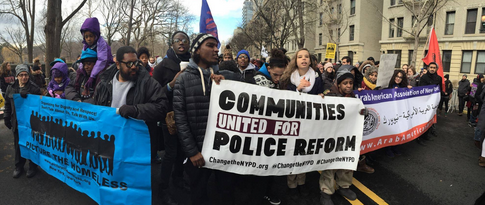Photos: Courtesy of Rise Above COVID
Rise Above COVID is partenering with over 200 barbershops, in places like New York City, to raise awareness of ACTIV-2, a nationwide clinical trial to evaluate potential treatments for early COVID-19.
The study is enrolling adults within eight days of experiencing symptoms and 10 days of their positive COVID-19 test result. ACTIV-2 is working to enroll people of color to ensure that the nation’s diverse population is represented in the trial.
The U.S. Black population has experienced 10 percent more COVID-19 cases, nearly 300 percent more hospitalizations, and 90 percent more deaths (CDC, March 2021) than non-Hispanic whites. Historically, the Black community has had the lowest clinical trial participation rates of any racial group and only 8 percent participation in clinical trials of drugs that were approved last year (FDA, 2020).
“Historical events like Tuskegee have understandably left many feeling that clinical trials shouldn’t be trusted,” said Lance Okeke, M.D., M.P.H. Assistant Professor of Medicine in the Division of Infectious Diseases and ACTIV-2 Principal Investigator, Duke University. “However, the National Research Act was signed into law in 1974 to ensure the highest ethical standards and conduct are met during clinical research. From my view on the frontlines of COVID-19 research, it is vitally important that we ensure treatments are safe and effective for the communities most impacted by this pandemic. Diverse clinical trial participation key to this effort.”
“My entire household tested positive, including my children, and we all experienced different symptoms,” said Mike McDaniel, a Black ACTIV-2 clinical trial participant in Los Angeles. “The impact on my family was painful. Participating in this clinical trial allowed me to make a valuable contribution to my community and I encourage others to do the same.”
While some in the Black community mistrust clinical trials, many deeply trust their barbershops and beauty salons. Rise Above COVID is partnering with more than 200 Black barbershops and beauty salons across New York City, Chicago, Chapel Hill, and Durham to engage patrons in “real talk” about COVID-19 and raise awareness of the ACTIV-2 clinical trial, which has multiple sites in each of those locales. These community-based safe spaces, which have long been epicenters of honest dialogue, are the ideal settings to candidly discuss topics ranging from the historical mistrust of clinical trials to the present-day devastation COVID-19 has had on the Black community. Barbershop and beauty salon customers receive detailed information about the study, along with complimentary facemasks and hand sanitizers from Rise Above COVID.
ACTIV-2 is being conducted to identify therapeutics that can prevent people who get COVID-19 from progressing to severe disease and hospitalization. The clinical trial is taking place in more than 140 nationwide sites including Atlanta, New Orleans, Houston, Chicago, New York, Baltimore, Philadelphia, Los Angeles, and others.
“I lost five family members to COVID-19 in 14 days and personally feel the devastation our Black community is experiencing,” said Tony Wafford, member of the Rise Above COVID Community Advisory Board. “Our community is being hit hard, and we need research that reflects our population. The time to join this movement is now.”
ACTIV-2 is conducted by the AIDS Clinical Trials Group (ACTG) and sponsored by the National Institute of Allergy and Infectious Diseases, part of the National Institutes of Health, with support from the Federal COVID Response – Therapeutics, the U.S. government’s multi-agency effort to accelerate the development, manufacturing, and distribution of COVID-19 vaccines, therapeutics, and diagnostics.
Founded in 1987, the AIDS Clinical Trials Group (ACTG) was the world’s first HIV research network. The ACTG conducts groundbreaking studies to improve the treatment of HIV and its complications; reduce new infections and HIV-related illness; and advance new approaches to prevent, treat, and ultimately cure HIV. ACTG studies have helped establish current paradigms for managing HIV disease, and have informed HIV treatment guidelines, resulting in dramatic decreases in HIV-related mortality .







